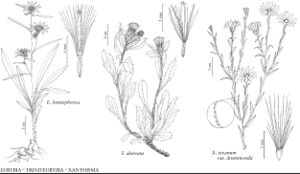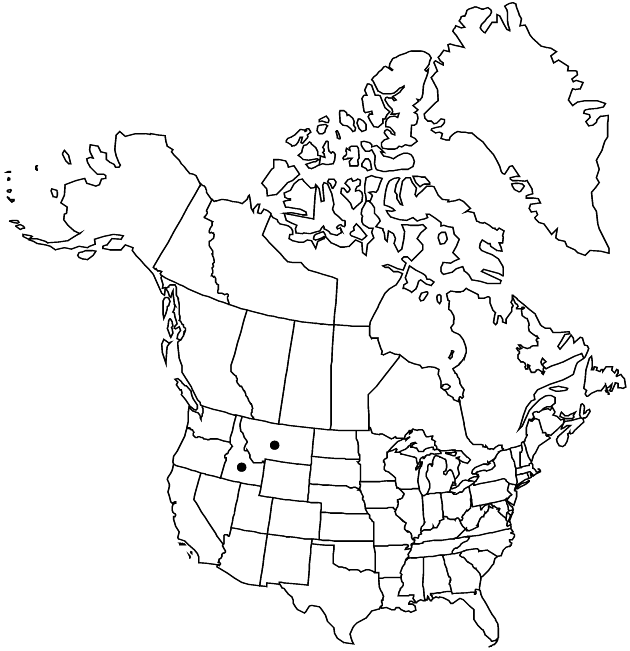Triniteurybia aberrans
Sida 21: 898. 2004.
Common names: Idaho goldenweed
IllustratedEndemic
Basionym: Macronema aberrans A. Nelson Bot. Gaz. 53: 226. 1912
Synonyms: Haplopappus aberrans (A. Nelson) H. M. Hall Sideranthus aberrans (A. Nelson) Rydberg Tonestus aberrans (A. Nelson) G. L. Nesom & D. R. Morgan
Revision as of 20:52, 27 May 2020 by imported>Volume Importer
Leaf blades ascending, 10–30 × 8–12 mm, gradually reduced distally, bases cuneate, apices obtuse to subacute. Heads sessile or subsessile in axils of distalmost leaves. Phyllaries bases indurate, apices acute. Disc florets 6.5–7(–8) mm, lobes ca. 0.8 mm, minutely and sparsely puberulent; style-branch 2–3 mm, ± equaling stigmatic portions. Cypselae purplish. 2n = 18.
Phenology: Flowering Aug.
Habitat: Crevices and outcrops of granite cliffs, in dry coniferous forests, montane zone or at and above timberline
Elevation: 1300–2500 m
Discussion
Triniteurybia aberrans is known only from the Sawtooth Mountains of Idaho, and from the Bitterroot Mountains of Montana, where it is considered sensitive. It is the only species of the eurybioids that has never been included in Aster. The chromosome number is based on an unpublished report (n = 9; L. C. Anderson 3660, MO).
Selected References
None.
Lower Taxa
None.

